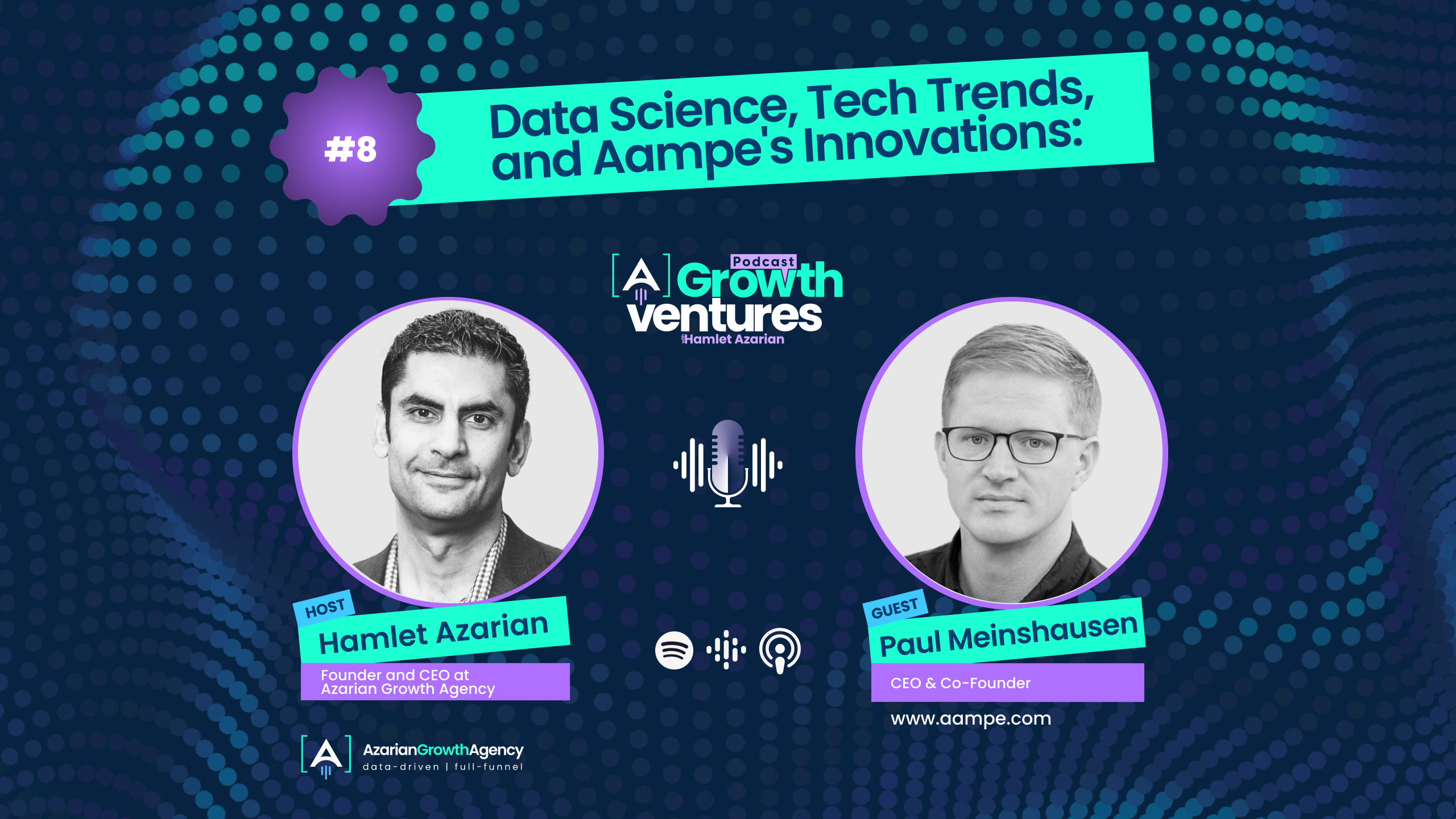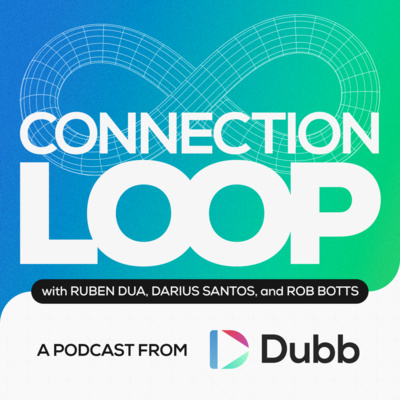In this episode, we’ll unravel the intricacies of data science, gain insights into emerging tech trends, and explore the innovative strides Aampe has made under his leadership.
From military-grade data analysis to building next-gen AI tools for marketers, Paul Meinshausen’s journey is a deep dive into how curiosity, computational thinking, and real-world application can converge to drive innovation across sectors.
In this episode of the [A] Growth Ventures Podcast, Hamlet Azarian sits down with Paul Meinshausen — data scientist, entrepreneur, angel investor, and co-founder of Aampe — to explore his career spanning defense analytics, emerging markets fintech, and cutting-edge AI infrastructure for messaging and personalization at scale.
What We Explored with Paul Meinshausen
Early Curiosity: From Homeschooling to Anthropology
Paul shares how his childhood freedom and exposure to exploratory learning laid the foundation for his lifelong obsession with human behavior, data, and systems thinking — leading him to anthropology, archaeology, and eventually, data science.
From Harvard to Kabul: Modeling Conflict with Data
Paul recounts his role with the U.S. Department of Defense, where he built data inference systems for complex war environments in Afghanistan — facing challenges around modeling, organizational buy-in, and translating data into operational decisions.
Breaking Academia to Build Impact
Disillusioned by academia’s inability to effect real-world change at scale, Paul turned to startups, joining high-growth teams in India and eventually co-founding Paysense, a consumer credit platform leveraging alternative data from SMS and mobile activity.
Scaling Financial Inclusion with Behavior-Based Lending
At Paysense, Paul and his team developed novel data extraction models to assess creditworthiness for India’s underbanked population — bypassing conventional credit scoring and scaling access to affordable loans. The company was later acquired in a landmark fintech exit.
The Angel Investor Mindset
Paul discusses how writing early checks into startups like Supabase allowed him to keep learning and stay engaged with early-stage innovation — offering insight into how he evaluates founders, deals, and the evolving startup ecosystem.
Introducing Amp: Reinventing Messaging with AI
Amp is on a mission to replace static CRM rules engines (like Braze) with probabilistic learning systems that dynamically personalize messages at scale. Paul breaks down the philosophy, architecture, and behavioral science behind Amp’s model-first approach.
Lessons from Trading Floors: Real-Time Learning Systems
Drawing parallels to algorithmic trading, Paul argues that marketing software should “think” and “act” like trading bots — constantly learning from real-time feedback, optimizing campaigns dynamically, and replacing guesswork with probabilistic inference.
Check out our podcast featuring Walter De Brouwer, on AI in healthcare and blockchain technology.
Key Takeaways
01:30 — The early inspiration: simulation, anthropology, and modeling human behavior
05:00 — Building data systems in Kabul and the organizational challenges of innovation in defense
10:30 — From Fulbright fellow to Department of Defense analyst — navigating non-traditional career paths
17:00 — Why real learning requires action: testing hypotheses through real-world feedback
20:00 — The birth of Paysense: bringing financial access to the underserved via SMS-based credit scoring
28:00 — NLP and data modeling: turning 90 days of SMS data into lending decisions
33:00 — Transitioning to angel investing: learning vicariously through early-stage founders
37:00 — Investing in Supabase: insights on remote-first culture, demand gen, and developer-led growth
39:00 — The genesis of Amp: enabling software to “learn like a human” through probabilistic modeling
44:00 — Limitations of legacy CRM: why if-then rules can’t scale for personalization
48:00 — Applying reinforcement learning and bandit algorithms to lifecycle messaging
52:00 — Strategic constraints + experimentation = scalable personalization
55:00 — The future of intelligent software: decisions that self-optimize, like algorithmic trading
Final Thoughts
Paul Meinshausen’s path is a striking reminder that data science is ultimately about understanding people — and building systems that can learn from behavior in real time.
From battlefield simulations to mobile finance in India and now AI-native messaging infrastructure, Paul’s story proves that curiosity, experimentation, and systems thinking are timeless tools for building scalable, impactful technology.
If you’re interested in AI infrastructure, lifecycle marketing, behavioral modeling, or early-stage investing — this episode is a must-listen.
Connect with Paul Meinshausen
LinkedIn: Paul Meinshausen






![[A] Growth Ventures - podcasts](https://src.azariangrowthagency.com/wp-content/uploads/2023/09/A-Growth-Ventures_logo.png)